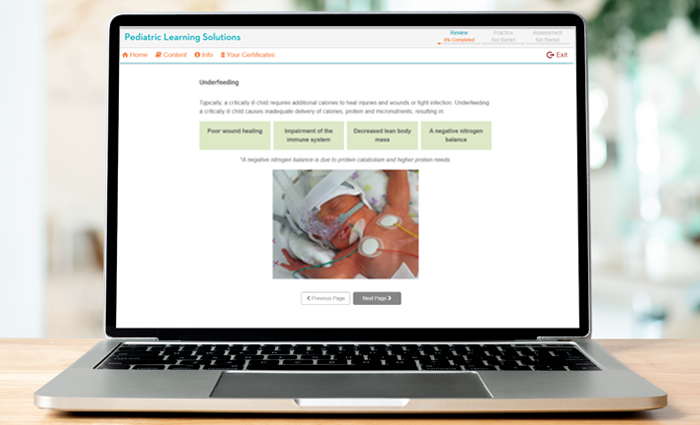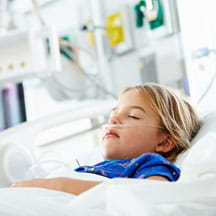When a child becomes critically ill, physiological changes ultimately result in a hypermetabolic response that leads to an increased resting energy expenditure, increased body temperature, total body protein loss, and skeletal muscle wasting. Effective nutrition support therapy improves wound healing, decreases catabolic response to injury (minimizing loss of protein) improves gastrointestinal structure and function, and reduces the risk of infection.
Upon completion of this course, pediatric clinicians will be able to provide for and manage the nutritional needs of the critically ill child according to current standards of evidence-based practice.

Objectives
- Define the two physiologic phases that occur in response to injury or acute illness.
- Explain the major components of a nutritional assessment.
- Discuss the concepts and complications of underfeeding and overfeeding.
- Explain the advantages, routes, components, potential complications and nursing considerations related to enteral nutrition.
- Identify and discuss the indications, components, routes, potential complications and nursing responsibilities related to parenteral nutrition.
Key features
- Learners follow ten-year-old Brandy, admitted to the pediatric intensive care unit, after sustaining significant injuries in a motor vehicle accident. Brandy's nutritional support needs are evaluated throughout the course.
- Printable Infant Formulas and Enteral Products job aid.
- Algorithm for recommended best practice NG tube placement and verification.
NOTE: This course is available to staff at PLS Participating Hospitals through their Learning Management Systems. If you are interested, please check with your organization’s education team or contact Patty Kohn to learn more.





